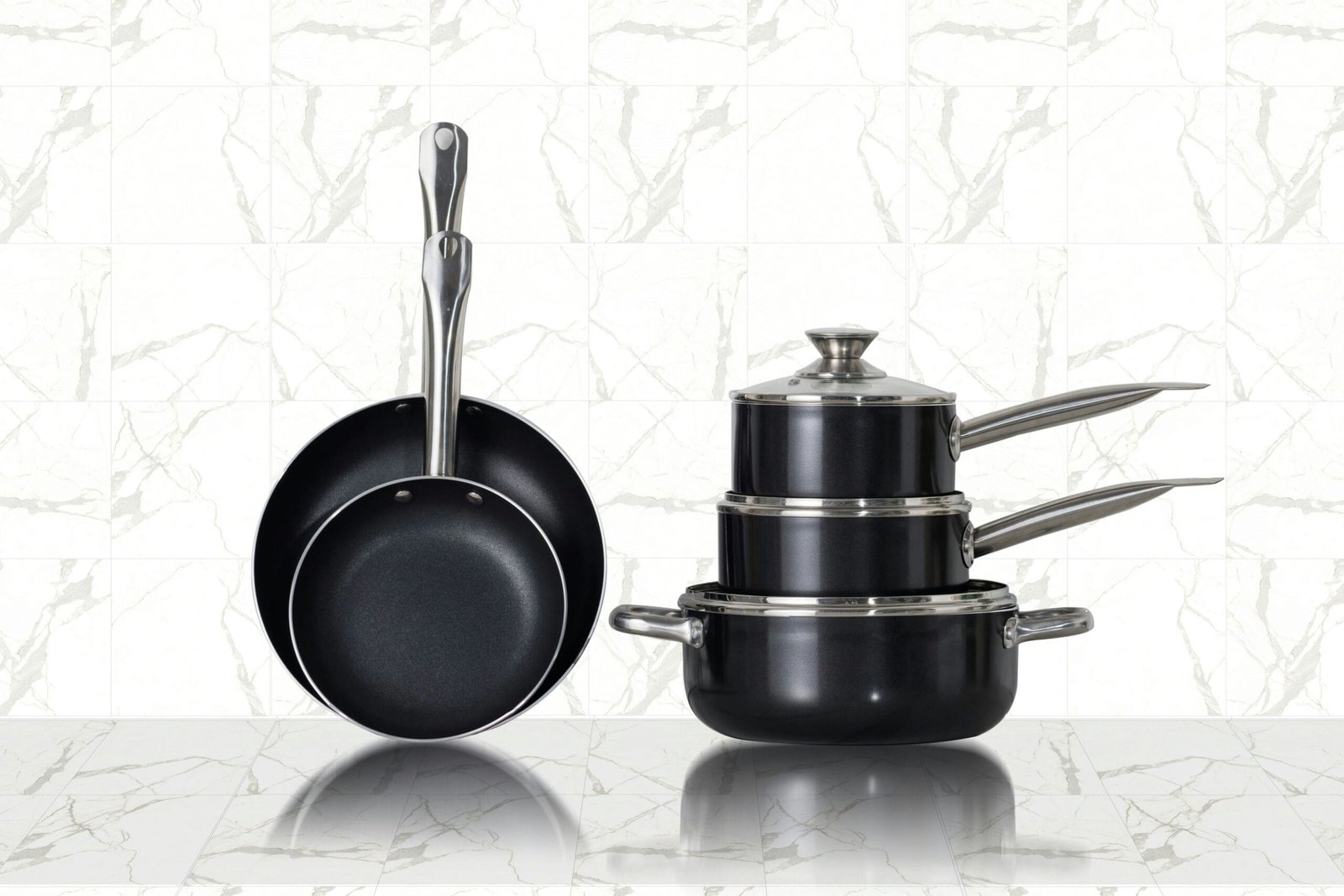How to Clean Your Cookware: Removing Soot, Rust, and Other Impurities
Despite the emergence of universal and multifunctional household appliances, a frying pan remains an indispensable part of every kitchen. Many cooking processes simply cannot be imagined without it. Therefore, it is crucial to take proper care of your cookware to ensure its longevity. Different materials require different cleaning methods, with cast iron and aluminum pans being more tolerant of tougher measures, while Teflon and ceramic pans require more delicate care. In this article, we will discuss effective ways to remove various impurities, including soot and rust, from different types of cookware.
Read this article and do not forget to check our YouTube channel “Grig Stamate” for other amazing videos:
https://www.youtube.com/@GrigStamate
Smart Ways to Use Wood and Reclaimed Wood in Your Home (video)
1. Cleaning Cast Iron and Aluminum Pans
Cast iron and aluminum pans are known for their durability and heat retention properties. However, they can be prone to rust and soot buildup if not cleaned properly. Here are some steps to effectively clean these types of pans:
Gather the necessary materials:
- Dish soap
- Warm water
- Sponge or soft brush
- Baking soda
- Vinegar
- Vegetable oil
Steps to follow:
- Start by rinsing the pan with warm water to remove any loose debris.
- Apply a small amount of dish soap to a sponge or soft brush and gently scrub the pan, paying extra attention to areas with stubborn stains or soot.
- Rinse the pan thoroughly with warm water to remove all traces of soap.
- If there are still stubborn stains or rust, create a paste by mixing baking soda with a small amount of water. Apply the paste to the affected areas and let it sit for a few minutes. Scrub gently with a sponge or soft brush and rinse thoroughly.
- To remove any remaining rust, soak the pan in a mixture of equal parts vinegar and water for a few hours or overnight. Rinse the pan thoroughly afterwards.
- Once the pan is clean and dry, apply a thin layer of vegetable oil to the surface to prevent rust from forming.
2. Cleaning Teflon and Ceramic Pans
Teflon and ceramic pans are popular for their non-stick properties, but they require more gentle cleaning methods to avoid damaging the coating. Here’s how you can effectively clean these types of pans:
Gather the necessary materials:
- Dish soap
- Warm water
- Soft sponge or cloth
- Baking soda
Steps to follow:
- Rinse the pan with warm water to remove any loose debris.
- Apply a small amount of dish soap to a soft sponge or cloth and gently clean the surface of the pan.
- Rinse the pan thoroughly with warm water to remove all traces of soap.
- If there are stubborn stains or residue, create a paste by mixing baking soda with a small amount of water. Apply the paste to the affected areas and let it sit for a few minutes. Gently scrub with a soft sponge or cloth and rinse thoroughly.
- Avoid using abrasive materials or harsh chemicals, as they can damage the non-stick coating.
- After cleaning, make sure to dry the pan completely before storing it to prevent moisture buildup.
3. General Tips for Cleaning Cookware
Regardless of the type of cookware you have, there are some general tips that can help you maintain their cleanliness and prolong their lifespan:
1. Avoid using metal utensils:
Using metal utensils can scratch the surface of your cookware, especially non-stick pans. Opt for wooden, silicone, or plastic utensils instead.
2. Avoid extreme temperature changes:
Rapid temperature changes can cause warping or cracking in certain types of cookware. Allow your pans to cool down gradually before cleaning them.
3. Regularly season cast iron pans:
Seasoning is the process of applying a thin layer of oil to the surface of a cast iron pan to maintain its non-stick properties and prevent rust. Follow the manufacturer’s instructions or search for specific seasoning methods for cast iron pans.
4. Use proper storage:
Stacking pans or placing heavy objects on top of them can lead to scratches or damage. Store your cookware in a way that prevents them from coming into contact with other items.
By following these tips and using the appropriate cleaning methods for your specific type of cookware, you can keep your pans in excellent condition for years to come. Remember to always read and follow the manufacturer’s instructions for cleaning and care to ensure the best results.
Other related posts from our website:
https://howtobuildahouseblog.com/magic-cleaning-solutions-for-your-home/
https://howtobuildahouseblog.com/cedar-roof-cleaning-and-restoration/
https://howtobuildahouseblog.com/natural-eco-friendly-and-cheap-household-cleaning-products/
Thank you so much for your attention.
Stay tuned. We will upload many other amazing posts to our website and videos onto our YouTube channel.
Thank you so much.
for your time and attention.
Best Regards
See you to another post,
Bye, Bye

